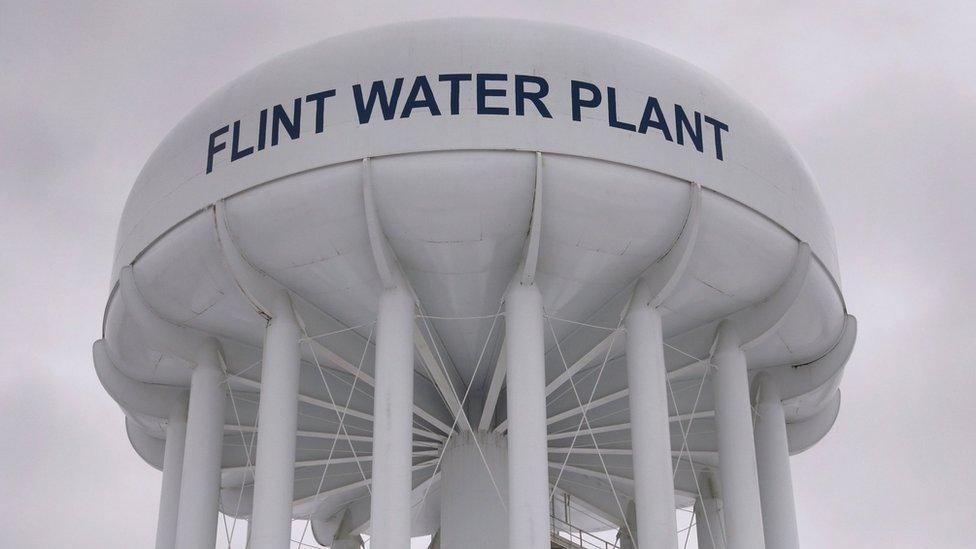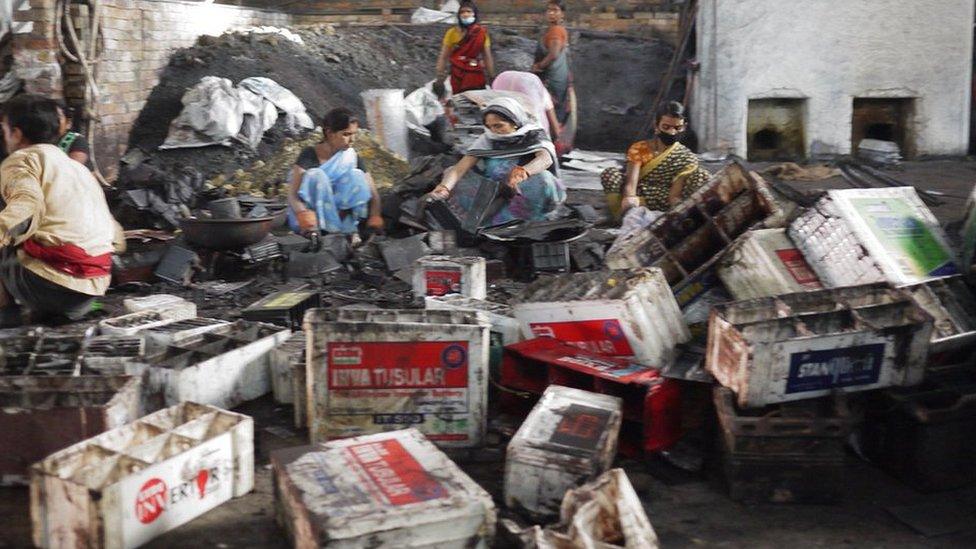Flint water crisis: Michigan 'agrees to pay $600m'
- Published

The US state of Michigan has agreed to pay a settlement of $600m to victims of the Flint water crisis, US media say.
Most of the money will go to children in the city who were exposed to drinking water poisoned with lead, reports add.
At least 12 people died after Flint switched its water supply to the Flint River in 2014 to save money.
An outbreak of Legionnaires' disease followed, and nearly 100,000 residents were left without safe tap water.
The settlement is expected to be formally announced later this week, the New York Times, Washington Post and Wall Street Journal say, citing sources familiar with the case.
There has been no official comment from the Michigan state government yet.
What do we know about the settlement?
Anyone who lived in Flint between 2014 and 2016 could be eligible for the settlement money, US media say.
However, almost 80% of the funds will go to residents who were under 18 at the time.
Experts say children are particularly vulnerable to lead poisoning, particularly babies and children under five who can experience brain damage before their brains are fully developed.
Flint is a majority-African American city, where over 40% of the residents live in poverty.
Why did this happen?
In 2014, Flint switched its water supply away from Detroit's system, which draws from Lake Huron, and instead used water from the Flint river.
Flint was in a financial state of emergency and the switch was meant to save the city millions of dollars.
But the water from the river was more corrosive than Lake Huron's water and was not treated properly, causing lead - a powerful neurotoxin - to leach from the pipes.
Residents started noticing that tap water sometimes came out blue or yellow - and many began to lose their hair, or develop rashes on their arms and face.
Despite this, local officials and leaders denied anything was wrong for over a year, even as residents complained that the water tasted and looked strange.
Aleem Maqbool on the Flint, Michigan, water crisis - and beyond
The city has since switched back to using Detroit's water system.
However, many local residents still rely on bottled water for drinking, cooking and washing, saying they no longer trust the government.
Thousands of residents filed lawsuits against the state of Michigan - and this settlement would only resolve claims against the state, not individuals including Rick Snyder who was governor at the time, or private companies, reports say.
Last year, prosecutors dropped all criminal charges against officials awaiting trial over the crisis, saying a more thorough investigation was needed.
- Published30 July 2020

- Published22 January 2016
